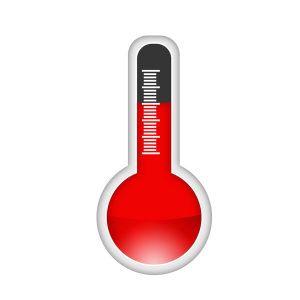
Air conditioners are designed to operate during hot days. That’s what they’re for, after all. But an air conditioning system can overheat the same way other mechanical devices like car engines do. When this happens, you may be stranded with a non-functioning AC on one of the hottest days of the year. The AC’s blower fan may stop working so no cool air circulates to the rooms, or the compressor may fail so you’ll still have air circulation, but the air will be room temperature.
Fixing overheated ACs is one of our major jobs during the summers. We have plenty of experience taking care of these failures and can explain in detail why they happen. You don’t need excessive amounts of detail, however, to understand why you need a Plymouth, IN, HVAC contractor to repair a busted air conditioner, so below we’ve only listed the major reasons for an air conditioner overheating:



 Past mid-February isn’t the end of winter, even with March around the corner. March is a notoriously unpredictable month—so much so people can’t even keep straight whether the saying is “March enters like a lamb and leaves like a lion” or “March enters like a lion and leaves like a lamb.”
Past mid-February isn’t the end of winter, even with March around the corner. March is a notoriously unpredictable month—so much so people can’t even keep straight whether the saying is “March enters like a lamb and leaves like a lion” or “March enters like a lion and leaves like a lamb.” Furnaces are the top type of heating system in the country. The majority of furnaces use natural gas to create heat, although they draw on electricity to power the blower fan and the ignition system. (Which means that, sorry, your gas furnace won’t work during a power outage.)
Furnaces are the top type of heating system in the country. The majority of furnaces use natural gas to create heat, although they draw on electricity to power the blower fan and the ignition system. (Which means that, sorry, your gas furnace won’t work during a power outage.) The fireplace is the oldest type of heating system that’s still in use. Fireplaces developed in the Middle Ages inside drafty castles because they allowed for the better direction of heat than the large central fires that buildings once used. The fireplace also created radiant heat of the bricks and stones around them, adding further warmth to a space.
The fireplace is the oldest type of heating system that’s still in use. Fireplaces developed in the Middle Ages inside drafty castles because they allowed for the better direction of heat than the large central fires that buildings once used. The fireplace also created radiant heat of the bricks and stones around them, adding further warmth to a space.